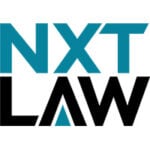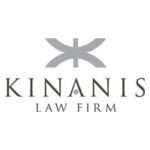-
Please provide a high-level overview of the blockchain market in your jurisdiction. In what business or public sectors are you seeing blockchain or other distributed ledger technologies being adopted?
In Finland, blockchain technologies are making significant strides, especially in the finance and decentralized finance (DeFi) sectors. A key highlight is the Global Dollar (USDG) stablecoin launched by Paxos (Issuance Europe Oy), following its acquisition of the Finnish Electronic Money Institution (EMI) Membrane Finance in early 2025. USDG stands out as one of the first fully regulated global USD-stablecoins in the European Union, issued in accordance with Regulation 2023/1114 on Markets in Crypto Assets (MiCA), and part of Global Dollar Network. In the DeFi landscape, Stani Kulechov, the founder of Aave, leads as a prominent figure with Aave being one of the world’s leading decentralized lending platforms.
Coinmotion, another pioneer established in 2012, serves as a major crypto-asset exchange, contributing to the local blockchain ecosystem. In July 2025, Coinmotion became the first company in Finland to receive an authorization from the Finnish Financial Supervisory Authority (FIN-FSA) to operate as a crypto-asset service provider (CASP) under MiCA. Shortly thereafter, Tesseract and Bittimaatti also received CASP authorizations from the FIN-FSA, further strengthening Finland’s regulated crypto-asset services sector and expanding the range of compliant service providers in the jurisdiction. Furthermore, based on the market movement, it is expected that more CASPs will shortly follow the footsteps of Coinmotion, Tesseract and Bittimaatti.
Equally notable is Equilibrium Group, which is advancing blockchain infrastructure on a global scale with projects like Gevolut, a Layer 1 blockchain, and SnarkOS, a decentralized operating system for zero-knowledge applications. These projects highlight Finland’s strong position in both blockchain development and technical expertise.
Ivy Pay, a licensed payment institution (PI) in Finland, exemplifies the integration of traditional payments with blockchain innovation by combining conventional payment execution with stablecoin-based transactions. This positions Ivy as a frontrunner in bridging established financial services with digital assets. Complementing this development, PaySaxas, a newly licensed EMI under the Finnish Payment Institutions Act and PSD2, enhances the landscape with a focus on B2B payments and cross-border trade, offering EMI-regulated services alongside crypto-asset exchange functionality. Together, these institutions highlight Finland’s role as a jurisdiction fostering compliant and innovative financial services under EU legislation..
Beyond finance, blockchain adoption is rapidly expanding into other sectors. Notably, alternative investment fund managers (AIFMs) such as Equilibrium Ventures, are at the forefront of this trend, actively incorporating crypto-asset-based investment structures. Their efforts demonstrate how blockchain is being integrated into traditional financial systems, further driving the growth and acceptance of digital assets in Finland.
The Finnish art scene is also embracing Web3, with the Finnish National Gallery’s Alusta project serving as a prime example—a digital Web3 art gallery showcasing the intersection of art and blockchain technology. These developments demonstrate Finland’s broad integration of blockchain technology across various industries.
-
Please outline the principal legislation and the regulators most relevant to the use of blockchain technologies in your jurisdiction. In particular, is there any blockchain-specific legislation or are there any blockchain-specific regulatory frameworks in your jurisdiction, either now or envisaged in the short or mid-term?
In Finland, the regulatory framework for blockchain technologies is primarily shaped by EU-level legislation. The most significant recent developments include the adoption of MiCA, the revised Regulation 2023/1113 on Information Accompanying Transfers of Funds and Certain Crypto-Assets (TFR), and the Regulation 2022/858 on a pilot regime for market infrastructures based on distributed ledger technology (the ‘Pilot-regime’). MiCA and TFR establish a harmonized legal framework for crypto-assets across the EU, enhancing transparency and security in crypto transactions, while the Pilot-regime facilitates the development of distributed ledger technologies and crypto-assets that qualify as financial instruments.
In addition to EU-level regulations, the Finnish Payment Institution Act (Maksulaitoslaki 297/2010) provides the national framework for licensing PIs and EMIs. While MiCA introduces a harmonised regime for CASPs, it does not by itself permit them to offer fiat or stablecoin-based payment services. CASPs wishing to complement their MiCA authorisation must therefore either apply for a PI or EMI license under the Finnish Payment Institutions Act, or alternatively partner with an entity already holding such a license. This position has been reinforced by the European Banking Authority (EBA), which clarified in its No Action Letter that the provision of services involving fiat-referenced stablecoins may also fall within the scope of PI or EMI licensing requirements.
To adopt MiCA and the TFR, Finland has enacted the Act on Crypto-Asset Service Providers and Markets in Crypto-Assets, which replaced the previous Finnish Virtual Asset Service Providers Act based on the EU’s 5th Anti-Money Laundering Directive (5AMLD). The CASP definition is somewhat broader, despite no longer covering the issuance of crypto-assets other than Electronic Money Tokens (EMTs) or Asset-Referenced Tokens (ARTs). It is also more specific, recognizing 10 distinct crypto-asset services, unlike the previous definition of a Virtual Asset Service Provider (VASP). This change is reasonable and reflects the evolving regulatory landscape.
MiCA became fully applicable on 30 December 2024. To facilitate a smooth transition from VASPs to CASPs, MiCA included a transitional provision allowing VASPs to operate until 1 July 2026, or until they obtain a CASP license under MiCA. However, the application of this provision is left to the discretion of the Member States. Finland adopted this transitional provision, and under the Finnish implementation, VASPs actively engaged in crypto-asset operations before 30 October 2024 were permitted to continue operating as VASPs until 30 June 2025 or until they obtained a CASP license under MiCA, provided that they applied for a CASP authorization by 30 October 2024. As the national transition period has ended, only authorised CASPs are permitted to actively provide their services in Finland, while VASPs with applications still under review may only offer such services after and if their authorisation is granted. In the absence of authorisation under MiCA, the entity must terminate all crypto-asset-related activities within the Union.
The Finnish transitional regime can be considered logical, as the purpose of it was to ensure that only service providers that comply with previous regulations and are active in the market have leeway to adapt to the new regulation without having to interrupt their services. It also aimed to ensure that the integrity of financial systems is preserved. This approach was crucial to ensure that the transition was seamless and that compliant actors could continue to thrive under the new regulation as well as demonstrated Finland’s commitment to fostering a stable and trustworthy crypto-asset market.
The principal regulator overseeing blockchain technologies in Finland is the FIN-FSA, responsible for licensing and supervising CASPs, as well as ensuring compliance with EU regulations, particularly anti-money laundering (AML) and counter-terrorism financing (CTF) requirements. Additionally, Sitra, the Finnish Innovation Fund, plays a key role by providing decision-makers with information on blockchain technology and crypto-assets, contributing to informed regulatory development.
-
What is the current attitude of the government and of regulators to the use of blockchain technology in your jurisdiction?
Overall, the Finnish government and regulators have a positive attitude towards blockchain technology, recognizing it as a significant opportunity for the Finnish economy. This supportive stance is reflected in initiatives like those led by Sitra, the Finnish Innovation Fund, which actively researches and provides insights into blockchain’s potential, such as its role in sustainable finance. Another example is the Finnish National Gallery’s Alusta project, a digital Web3 art gallery that demonstrates the integration of blockchain technology into the art sector. The Ministry of Economic Affairs and Employment (Työ- ja elinkeinoministeriö, TEM) has also initiated round-table discussions with industry stakeholders on how to make the crypto-asset sector more attractive and competitive in Finland, underlining the government’s openness to dialogue and innovation.
However, while these applications showcase the potential of blockchain, authorities have also emphasized that the technology is still relatively immature, with aspects such as cost-effectiveness, potential risks, and unforeseen challenges not yet fully understood. This balanced approach reflects Finland’s commitment to exploring blockchain’s benefits while remaining mindful of its limitations.
-
Is there a central bank digital currency (‘CBDC’) project in your jurisdiction? If so, what is the status of the project?
Regarding central bank digital currencies (CBDCs), Finland’s situation is not unique and is the same as in other EU member states using the euro, as the Eurosystem—comprising Finland and other eurozone countries—is responsible for their development. This unified approach ensures that any potential future CBDCs benefit from shared expertise and regulatory coherence across the eurozone.
While there is not a national CBDC project specific to Finland, the European Central Bank (ECB) has recently been making progress on drafting a digital euro scheme rulebook. However, in light of recent developments in the United States, where plans for a CBDC have been halted, the future stance on a European CBDC remains somewhat uncertain. Concerns around privacy, such as how authorities might monitor and supervise CBDC transactions and the potential impact on the citizens and society as a whole, are similar in Finland to those across the eurozone.
-
What is the current approach in your jurisdiction to the treatment of cryptoassets and decentralised finance (‘DeFi’) for the purposes of financial regulation?
According to MiCA, a crypto-asset means “a digital representation of a value or of a right that is able to be transferred and stored electronically using distributed ledger technology or similar technology”. In Finland, or in MiCA, crypto-assets are not explicitly classified as financial instruments, securities, deposits or pensions, as they are simply classified as crypto-assets. However, determining their status depends on the specificities of each crypto-asset and how they are used. For example, if a financial instrument utilizes blockchain technology, it remains classified as a financial instrument and is therefore outside the scope of MiCA.
In Finland, the regulatory treatment of DeFi depends on the level of decentralisation involved. If the DeFi protocol/application is only normally decentralised, meaning a central entity still exercises control, that entity may fall within the scope of MiCA and be required to obtain authorisation as a CASP, offeror or issuer – depending on the nature of operations. However, if a DeFi protocol is fully decentralised, with no identifiable central operator, it falls outside the scope of both current national regulations and MiCA. Consequently, fully decentralised DeFi protocols remain largely unregulated under Finnish law.
-
What is the current approach in your jurisdiction to the treatment of cryptoassets and DeFi for the purposes of anti-money laundering and sanctions?
In Finland, financial service providers –including CASPs and EMIs – are subject to the AML Act, which is based on 5AMLD.This Act requires companies to implement stringent customer identification and verification processes. Under the AML Act, companies must verify customers’ identities when establishing a permanent customer relationship, conducting transactions that meet certain thresholds, or if the transaction appears suspicious. If these requirements are not met, companies are prohibited from providing their services.
Furthermore, companies must maintain risk assessments, policies, and procedures aligned with the AML Act. Remote or digital onboarding is allowed but must be supported by additional security measures, such as verifying identity with extra documents or ensuring that payments come from previously verified bank accounts. AML Act also includes specific rules on sanctions, which must be followed.
The FIN-FSA provides additional guidelines (e.g., MOK 2/2023), detailing how companies should handle risk assessments, employee training, whistleblowing, customer due diligence, and data retention. It also clarifies when entities should contact the FIN-FSA or the Anti-Money Laundering Center under the National Bureau of Investigation.
Thus, where a central operator exists, this comprehensive regulatory framework ensures that crypto-assets are subject to strict AML and counter-terrorist financing (CFT) standards in Finland, which are also supported by the TFR Regulation. As mentioned earlier, fully decentralised DeFi protocols however remain largely unregulated when it comes to AML and sanctions. The EBA and the European Securities and Markets Authority (ESMA) have recently found in their Joint Report that DeFi protocols pose significant risks of money laundering and terrorist financing, primarily due to the current lack of adequate AML/CFT controls. However, they did not take a stance on whether DeFi protocols should be subject to potential future legislation.
-
What is the current approach in your jurisdiction to the treatment of cryptoassets and DeFi for the purposes of taxation?
In Finland, the taxation of crypto-assets is governed by the Income Tax Act and further clarified by the Finnish Tax Administration’s guidance on crypto-assets. While the Tax Administration’s guidance is not legally binding like an act, it plays a significant role in shaping the interpretation of crypto-asset taxation.
According to the guidance, crypto-assets are treated as commodities, which means that transactions involving the sale or exchange of crypto-assets are subject to capital gains taxation. This includes transactions where crypto-assets are exchanged for fiat currency, other crypto-assets, or commodities. The capital gains tax applies to any increase in value, and capital losses can be deducted in accordance with the Income Tax Act.
In 2025, the Finnish Tax Administration issued a preliminary ruling concerning funds raised through selling of a MiCA-compliant crypto-asset, other than stablecoin. The authority concluded that the proceeds were subject to the general VAT rate of 25.5%, on the grounds that the token in question qualified as a other crypto-asset without recognized payment function. While case-specific, this ruling highlights the Finnish tax authority’s cautious approach and illustrates how the classification of a crypto-asset can have direct implications for its VAT treatment..
In case of mining, the income generated from Proof of Work activities is generally treated as earned income and taxed differently from capital gains. Activities related to DeFi and Proof of Stake, however, can trigger capital gains taxation as they involve the realisation of value from crypto-assets.
The structured approach ensures that individuals and companies engaging crypto-asset transactions in Finland are subject to clear and consistent tax obligations, which helps maintain fiscal transparency and compliance. Staying informed about the evolving regulatory landscape is essential for anyone involved in the Finnish crypto-asset market.
-
Are there any prohibitions on the use or trading of cryptoassets in your jurisdiction? If permitted, is cryptoasset trading common?
The use or trading of crypto-assets themselves are not prohibited in Finland. Thus, if a blockchain technology is used only for internal services, or if a person wishes to purchase, trade, or hold crypto-assets and act on their own behalf, it does not require any kind of license, permission, or registration.
However, the provision of such services has been and still is subject to licensing and regulation under MiCA. According to MiCA, a person shall not provide crypto-asset services, within the Union, unless it is a legal person or other undertaking that has been authorised as a CASP under MiCA or inter alia a credit institution, central securities depository, investment firm, market operator, electronic money institution, UCITS management company, or an alternative investment fund manager that is allowed to provide crypto-asset services pursuant to MiCA. CASP registration is applied in Finland from the FIN-FSA with a separate application and the process is estimated to take approximately 6-9 months.
In addition to complying with general obligations imposed by MiCA, depending on the services provided, CASPs must also comply with the specific obligations imposed by MiCA for that service. For example, a CASP operating a trading platform for crypto-assets shall among other things lay down, maintain and implement clear and transparent operating rules for the trading platform.
In light of the above, as the use or trading of the crypto-assets are not prohibited, the generality of the trading depends on the other factors. As mentioned in the previous answer to the question 7, transactions involving the sale or exchange, including trading, of crypto-assets are subject to capital gains taxation. In Finland, an investor must pay 30% tax if the capital income does not exceed 30,000 euros per year and a tax of 34% must be paid is excess of this. Hence, taxation alone can make trading unprofitable, especially when it comes to private investors, and crypto-asset trading has therefore not become very popular in Finland.
-
To what extent have initial coin offerings (‘ICOs’) taken place in your jurisdiction and what has been the attitude of relevant authorities to ICOs? If permissible, what are the key requirements that an entity would need to comply with when launching an ICO?
After MiCA became fully applicable on 30 December 2024, the issuance of tokens became subject to the same rules and requirements in all EU Member States, including Finland. This eliminated the need for a previous VASP registration for token issuances concerning other tokens than EMTs and ARTs in Finland, and provided a clearer and more streamlined process for entities looking to launch ICOs. As a result, the regulatory barriers that previously hindered ICOs in Finland are significantly reduced, making it more feasible for such offerings to take place in line with the new, unified EU-wide regulations.
White Swan, a Finland based “meme coin”, held an ICO in early 2025, claiming to be the first MiCA-compliant meme coin in Europe. The offering raised a total of 1694 Solana tokens, an approximate of EUR 310 500 at the time, illustrating that compliant projects can be successfully launched under the new MiCA regime.
When it comes to the attitude of relevant authorities, the FIN-FSA, ESMA, as well as EBA have issued warnings about the risks associated with ICOs and crypto-assets in general. These risks include potential fraud, insufficient regulation, and the volatility of the crypto-assets. It has been emphasised that individuals and companies interested in participating in or launching ICOs should be aware of these risks and ensure that they comply with all applicable legal requirements.
As of 2025, MiCA provides comprehensive rules on making an offer to the public of a crypto-assets. According to MiCA, a person shall not make an offer to the public of a crypto-asset in Union unless that person:
- is a legal person;
- has drawn up a crypto-asset white paper in respect of that crypto-asset;
- has notified and published the crypto-asset white paper;
- has drafted and published the marketing communications, if any, in respect of that crypto-asset;
- complies with the requirements for offerors laid down in MiCA.
These can be considered as the key requirements for ICOs, but this list of requirements is not exhaustive, and there are other requirements that should be considered. For example, entities falling within the scope of MiCA should also comply with applicable anti-money laundering and counter-terrorist financing rules of the Union, including in relation to ICOs.
It should be added that in case the MiCA does not apply, the token offering may fall under the scope of securities or investment products depending on the nature of the token and the rights it grants to investors, and therefore also other existing financial and securities legislation may apply to ICOs.
-
Are there any legal or regulatory issues concerning the transfer of title to or the granting of security over cryptoassets?
In Finland, legal and regulatory issues concerning the transfer of title or the granting of security over crypto-assets revolve around how these assets are treated under existing legal frameworks. Key considerations include the recognition of ownership, and the enforceability of security interests.
The ownership of crypto-assets is treated similarly to ownership of traditional objects, particularly in financial contexts. The basic principle is that a person who holds the private keys to a blockchain address is presumed to own the crypto-assets recorded at that address. However, this assumption can be challenged by other evidence, such as custodial arrangements or contractual agreements, which may provide alternative explanations for ownership.
A notable legal precedent in Finland regarding crypto-assets is the Supreme Court (korkein oikeus, or KKO) case KKO 2020:64. In this case, the KKO examined the ownership of Bitcoin stored in a custodial account. When one of the parties became subject to bankruptcy proceedings, the KKO ruled that the mixing of assets in the custody account invalidated the other individual’s ownership claims, demonstrating how custodial arrangements can complicate ownership rights.
Additionally, under MiCA, CASPs are required to separate customers’ crypto-assets from their own funds, ensuring greater security for customers in the event of enforcement or insolvency.
Thus, the transfer of title and granting of security over crypto-assets in Finland depends heavily on both possession of private keys and other legal agreements, as well as compliance with regulations such as MiCA, which ensures the proper segregation of assets. Ownership disputes are resolved based on who can demonstrate the most legally justified claim to the assets, using both blockchain records and additional agreements.
In conclusion, while there are no explicit prohibitions on transferring title or granting security over crypto-assets in Finland, the legal framework remains underdeveloped, and uncertainties persist, especially around the enforcement of security interests and the recognition of ownership.
-
How are smart contracts characterised within your legal framework? Are there any enforceability issues specific to the operation of smart contracts which do not arise in the case of traditional legal contracts?
In Finland, smart contracts are not explicitly regulated or prohibited, allowing their use within the legal framework. However, the EU-wide Data Act, which became applicable on 12 September 2025, introduced certain requirements for smart contracts. Specifically, smart contracts covered by the Data Act must include mechanisms to cease their operational and internal functions to terminate or suspend their execution to prevent unintended actions.
While Finland recognises freedom of contract, allowing private parties to establish agreements using smart contracts, it is essential to have clear legal and contractual agreements since smart contracts operate as computer code. These legal agreements help ensure the potential enforceability issues. Smart contracts differ from traditional contracts mainly due to their automated nature and reliance on code, which may lead to unique challenges regarding interpretation and enforcement.
-
How are Decentralised Autonomous Organisations (‘DAOs’) treated in your jurisdiction?
DAOs are not currently recognised as legal entities under Finnish law, although a report commissioned by Sitra, the Finnish Innovation Fund, has proposed that regulation of DAOs could be incorporated into the Finnish Cooperatives Act.
We would categorize DAOs as digital smart contracts that allow participants (token holders) to make decisions based on pre-set rules. Since DAOs in Finland lack legal personality, they cannot hold rights, obligations, or property on their own name. Any legal actions, such as owning property or entering into contracts, must be attributed to the individuals involved in the DAO.
This creates a significant challenge in cases of liability and ownership, as DAOs themselves are not subject to legal responsibilities. Instead, the natural persons behind the DAO’s operation or action in the name of DAO may be held accountable. If a participant holds the majority of tokens and uses this majority power, they could be deemed responsible for DAO’s actions.
Furthermore, Finnish Law requires entities to be legal subjects to have rights and obligations, making DAOs a grey area in terms of governance and accountability. Although there is no specific legislation governing DAOs, participants in a DAO could still be expected to follow the Finnish law if they are located in or connected to Finland. However, due to the lack of clear regulations, the legal status of DAOs remains ambiguous, and the legal consequences for DAO operations in Finland are still uncertain. This legal uncertainty highlights the need for future regulation to address the unique structure and functionality of DAOs in Finland.
-
Have there been any governmental or regulatory enforcement actions concerning blockchain in your jurisdiction?
In Finland, there have not been any direct regulatory enforcement actions specifically targeting blockchain technology, as it remains largely unregulated at a broad level. However, Finnish authorities, particularly the FIN-FSA, have been proactive in guiding companies operating in the blockchain sector, especially when their activities require specific licenses. The FIN-FSA has issued regulations and guidelines, some of which are mandatory for CASPs.
The Finnish Tax Administration has also provided clear guidance on the taxation of crypto-assets to ensure that blockchain-related activities are properly taxed under Finnish law. This approach contributes to Finland’s reputation for having a transparent, fair, and stable regulatory environment, making it an attractive destination for blockchain and fintech companies, especially when compared to the more uncertain regulatory frameworks in some other European countries, such as the Baltic states.
Overall, while no specific enforcement actions on blockchain have been reported, Finnish regulators remain active in providing necessary guidance and oversight where blockchain intersects with existing financial and tax regulations.
-
Are there any other generally-applicable laws, case law or regulations that may present issues for the use of blockchain technology (such as privacy and data protection law or insolvency law)?
Several general laws and regulations, including data protection, can pose challenges for the use of blockchain technology in Finland. Finland adheres closely to the EU General Data Protection Regulation (GDPR), which governs how personal data must be protected. Additionally, Finland’s Data Protection Act and other regulations such as the Accounting Act and AML Act impose obligations on businesses, particularly with regard to data retention and privacy.
For example, under the AML Act, companies must retain customer data for at least five years after the end of customer relationship, which can limit the “right to be forgotten” under GDPR. In the blockchain context, this is especially relevant, as blockchain’s immutability conflicts with GDPR’s data erasure requirements.
Additionally, MiCA has introduced further data privacy considerations. MiCA clarifies that if personal data is exchanged as part of a transaction involving crypto-assets, this transaction is not considered free, meaning such exchange must comply with GDPR requirements.
-
Are there any other key issues concerning blockchain technology in your jurisdiction that legal practitioners should be aware of?
While there are no additional issues worth mentioning, it is important to highlight the advantages of Finland’s blockchain and Web3 landscape. Finland’s reputation for legal certainty and transparency makes it an attractive base for blockchain ventures. The Finnish legal system is known for its consistency and lack of arbitrary rulings, offering companies a more stable environment compared to many other nations. This predictability is particularly valuable in the blockchain sector, where regulatory environments often shift and vary widely across regions.
Now that MiCA is fully applicable, blockchain developers have increasingly been establishing and expanding their operations in Finland rather than relocating to less familiar jurisdictions. MiCA’s uniformity across the EU Member States has eliminated the need to navigate different rules in each country, making Finland an even more appealing and predictable location for CASPs and blockchain startups. Additionally, the now applicable EU Regulation 2022/2554 on digital operational resilience for the financial sector (DORA) further promotes the development of secure fintech solutions, including those governed by MiCA. This regulatory consistency simplifies compliance and strengthens Finland’s position as an attractive and secure option for blockchain businesses looking for a reliable operating environment.
Finland: Blockchain & Crypto Assets
This country-specific Q&A provides an overview of Blockchain & Crypto Assets laws and regulations applicable in Finland.
-
Please provide a high-level overview of the blockchain market in your jurisdiction. In what business or public sectors are you seeing blockchain or other distributed ledger technologies being adopted?
-
Please outline the principal legislation and the regulators most relevant to the use of blockchain technologies in your jurisdiction. In particular, is there any blockchain-specific legislation or are there any blockchain-specific regulatory frameworks in your jurisdiction, either now or envisaged in the short or mid-term?
-
What is the current attitude of the government and of regulators to the use of blockchain technology in your jurisdiction?
-
Is there a central bank digital currency (‘CBDC’) project in your jurisdiction? If so, what is the status of the project?
-
What is the current approach in your jurisdiction to the treatment of cryptoassets and decentralised finance (‘DeFi’) for the purposes of financial regulation?
-
What is the current approach in your jurisdiction to the treatment of cryptoassets and DeFi for the purposes of anti-money laundering and sanctions?
-
What is the current approach in your jurisdiction to the treatment of cryptoassets and DeFi for the purposes of taxation?
-
Are there any prohibitions on the use or trading of cryptoassets in your jurisdiction? If permitted, is cryptoasset trading common?
-
To what extent have initial coin offerings (‘ICOs’) taken place in your jurisdiction and what has been the attitude of relevant authorities to ICOs? If permissible, what are the key requirements that an entity would need to comply with when launching an ICO?
-
Are there any legal or regulatory issues concerning the transfer of title to or the granting of security over cryptoassets?
-
How are smart contracts characterised within your legal framework? Are there any enforceability issues specific to the operation of smart contracts which do not arise in the case of traditional legal contracts?
-
How are Decentralised Autonomous Organisations (‘DAOs’) treated in your jurisdiction?
-
Have there been any governmental or regulatory enforcement actions concerning blockchain in your jurisdiction?
-
Are there any other generally-applicable laws, case law or regulations that may present issues for the use of blockchain technology (such as privacy and data protection law or insolvency law)?
-
Are there any other key issues concerning blockchain technology in your jurisdiction that legal practitioners should be aware of?




















